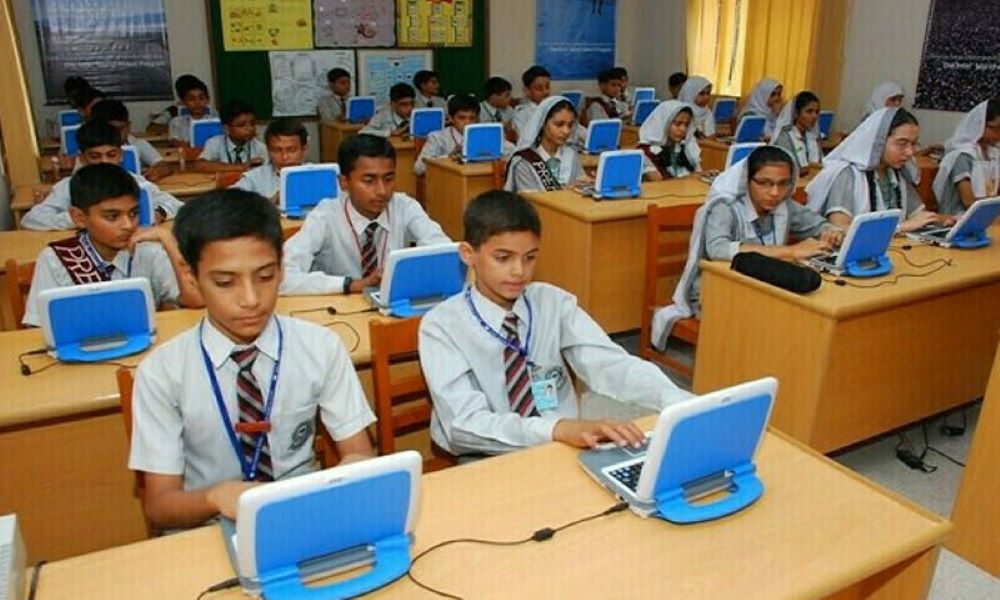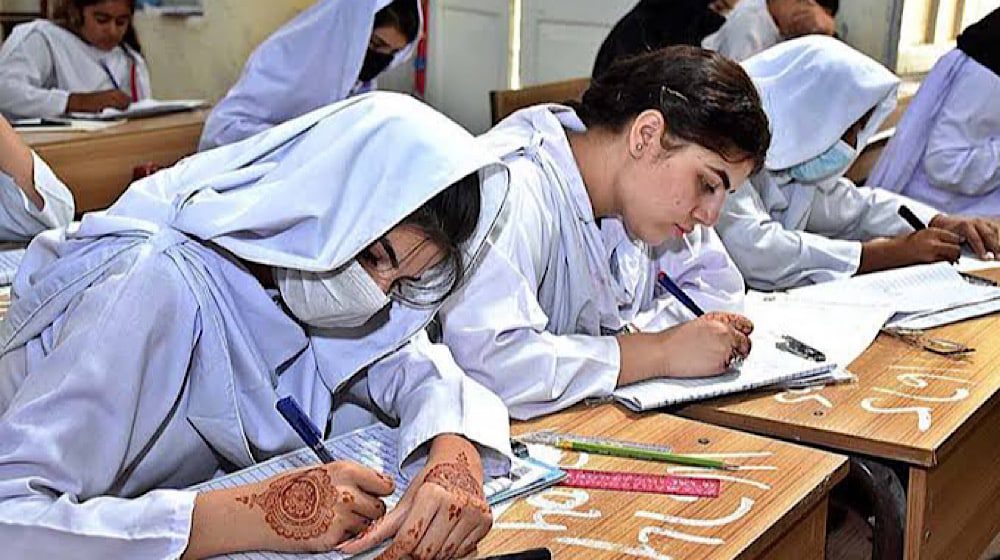By announcing the opening of Information Technology (IT) colleges in 30 districts. The government of Sindh has took a significant step toward changing the educational landscape of the province. This program which is a component of the larger Digital Education in Sindh 2025 vision demonstrates a concerted effort. To establish Sindh as a center for contemporary education and digital literacy.
Officials from the Department of College Education have confirmed that the project includes all seven administrative districts of Karachi. Ensuring that there is no region left behind in the province on technological transformation.
This major educational reform aims to bridge gap between traditional learning and digital innovation while equipping the youth with the technical expertise needed to survive in today globalized world. The move represents a future oriented vision that aligns with Pakistan growing IT industry and global demand for digital skills.
Sindh Government’s Vision for IT Education
The decision to establish IT colleges across Sindh is deeply rooted in the province vision for equitable and progressive education. It follows a directive from the Sindh High Court Sukkur Bench issued on September 17, 2025 which emphasized the necessity of establishing technology based institutions in every district.
The court directive called for uniform access to IT education to promote computer literacy and ensure that students from all backgrounds can participate in the digital revolution. In response, the Department of College Education Sindh has mobilized resources to bring this vision to life.
The Director General Colleges and Regional Director Colleges have been instructed to submit detailed assessments of existing infrastructure, available resources and additional requirements to establish IT colleges in their respective areas. With a three day deadline for these reports the urgency underscores the government commitment to executing the plan swiftly and efficiently.
This initiative reflects the government understanding that technology education is not just an option but a necessity in today economy. Digital Education in Sindh 2025 builds its foundation on three pillars inclusivity, innovation, and opportunity that will redefine education across the province.
Focus on Digital Empowerment and Youth Employment
The main objective of this project is to use digital education to empower youth. The need for experts in domains like artificial intelligence, software engineering, cybersecurity, and data science has increased as Pakistan’s IT industry continues to expand. In order to prepare youth for these quickly growing industries the Sindh government made the strategic decision to open IT colleges in every district.
The initiative seeks to close the digital divide between rural and urban areas by making high quality technical education accessible. Now students from far flung districts will be able to study in state of the art computer labs. They are exposed to international technological trends and receive instruction from certified teachers. Due to the democratization of education digital empowerment is now available throughout Sindh creating new opportunities for innovation and employment.
The initiative would improve computer literacy and develop a generation of skilled professionals who could contribute to Pakistan’s digital economy. According to a Department of College Education official, who emphasized the significance of this step. With this progressive strategy Sindh is establishing itself as one of Pakistan leading provinces in digital education.
Seven IT Colleges Planned in Karachi
Karachi the economic and technological hub of Pakistan plays a key role in the Sindh government’s development plan. Seven specialized IT colleges will be set up across the city’s districts South, East, West, Central, Korangi, Malir and Keamari. These colleges will offer diplomas, intermediate courses and bachelor’s degrees in IT, computer science and software engineering.
Key Points:
- Seven IT colleges to be established in Karachi one in each district.
- Programs include diplomas, intermediate and bachelor’s degrees in IT-related fields.
- The Sindh Education Department plans collaborations with top universities and IT firms.
- Industry academic partnerships will help design globally competitive curricula.
- Graduates will gain strong theoretical and practical skills boosting job market readiness.
- The initiative aims to create a skilled future ready generation for Pakistan IT sector.
Infrastructure and Facilities
Each of the upcoming IT colleges will feature state of the art infrastructure designed to create a world class learning environment. The government plan includes modern computer laboratories equipped with the latest hardware and software. High speed internet connectivity and interactive smart classrooms that encourage student engagement and collaboration.
Each institution will integrate digital libraries and online learning management systems (LMS) to enable remote study and e-learning. The Digital Education in Sindh 2025 strategy, which encourages adaptability, accessibility and creativity in teaching approaches is in line with this hybrid educational model.
Emerging technologies such as artificial intelligence, data analytics, cloud computing, software development, app creation, and cybersecurity will be the main focus of the curriculum and facilities. Every student should graduate with both theoretical knowledge and practical proficiency. Both are important areas of the digital economy, according to the government.
Beyond academics the environment of these colleges will encourage innovation, creativity and entrepreneurship. Students will be supported in launching startups, developing research projects and exploring solutions. To real world technological challenges helping Sindh evolve into a true center of digital excellence.
Economic and Social Impact
This initiative has significant economic ramifications. Thousands of new jobs for administrators, teachers, IT professionals, consultants, and support personnel will be created by the opening of IT colleges throughout Sindh. Consequently, each district’s local economy will gain from more jobs and new business prospects.
The program will encourage cooperation between the public and private sectors in addition to creating jobs. Collaborations on training programs, research and internships will give students real-world experience and a path to long-term employment. The government emphasis on skill based education is in line with national goals to lower unemployment. Also to encourage entrepreneurship and draw capital to the tech industry.
ChatGPT said:
Educational experts across Pakistan have praised this innovative move, emphasizing that long-term economic resilience relies on investing in technology-based education. Such programs will reshape how students interact with technology. Create new avenues for innovation, research and economic growth according to a senior educationist from Karachi.
Monitoring and Evaluation
The success of digital education in Sindh 2025 depends heavily on accountability and transparency. To ensure that the project meets its goals the Sindh Department of College Education will establish a monitoring and evaluation framework. Regular progress reports will be submitted to the provincial government and periodic public updates. It will help maintain trust and transparency throughout the implementation phase.
Officials have indicated that once the planning stage is completed construction will commence immediately in districts where land and basic resources are already available. This phased approach allows the government to begin operations in selected areas while continuing development elsewhere.
The Sindh government wants to guarantee that every IT college is operational as soon as possible by fusing efficiency and transparency. Both communities and students experience real benefits from it.
A Step Toward a Digital Sindh
An important step in Sindh transition to a fully digital educational system has been the opening of IT colleges in each district. It is ideally in line with Pakistan Digital Transformation Vision 2030 which places a strong emphasis on incorporating technology into economic development, governance and education.
Through this initiative the Sindh government is fulfilling the court directive and also demonstrating its commitment to building a future where education and technology go hand in hand. By providing equitable access to quality IT education the province is preparing its youth to participate in a digital first world.
For students from all backgrounds, this forward thinking vision represents empowerment, opportunity, and hope. It shows that Sindh is committed to setting the standard for digital inclusion and technological innovation.
About Parhlo Pakistan
Parhlo Pakistan is an emerging digital education platform dedicated to promoting knowledge, awareness and academic resources for Pakistani students. Through insightful articles, exam preparation materials and updates on educational developments. Parhlo Pakistan strives to make learning accessible for everyone.
The platform covers topics such as board past papers, educational reforms, career guidance and empowering students across the country to stay informed and prepared for future challenges. By highlighting key educational initiatives. Parhlo Pakistan continues to play a vital role in supporting Pakistan’s journey toward a smarter tech driven future.
Conclusion: Building a Digital Future for Sindh
A new era of digital education in Pakistan is being ushered in by the ambitious plan by the Sindh government to establish IT colleges in 30 districts. This program brings advanced learning opportunities to both urban and rural areas, embodying progress, equality and vision.
Sindh is fostering a new generation of entrepreneurs, innovators and problem solvers who will guide Pakistan into the digital era by investing in technology driven education. Digital education in Sindh is expected to empower young people by 2025. The bustling districts of Karachi to the most remote regions of the province.
Also enhance employability and strengthen the foundation of a technologically advanced society. Sindh commitment to digital transformation is clear the future of education is here and it is powered by technology.




